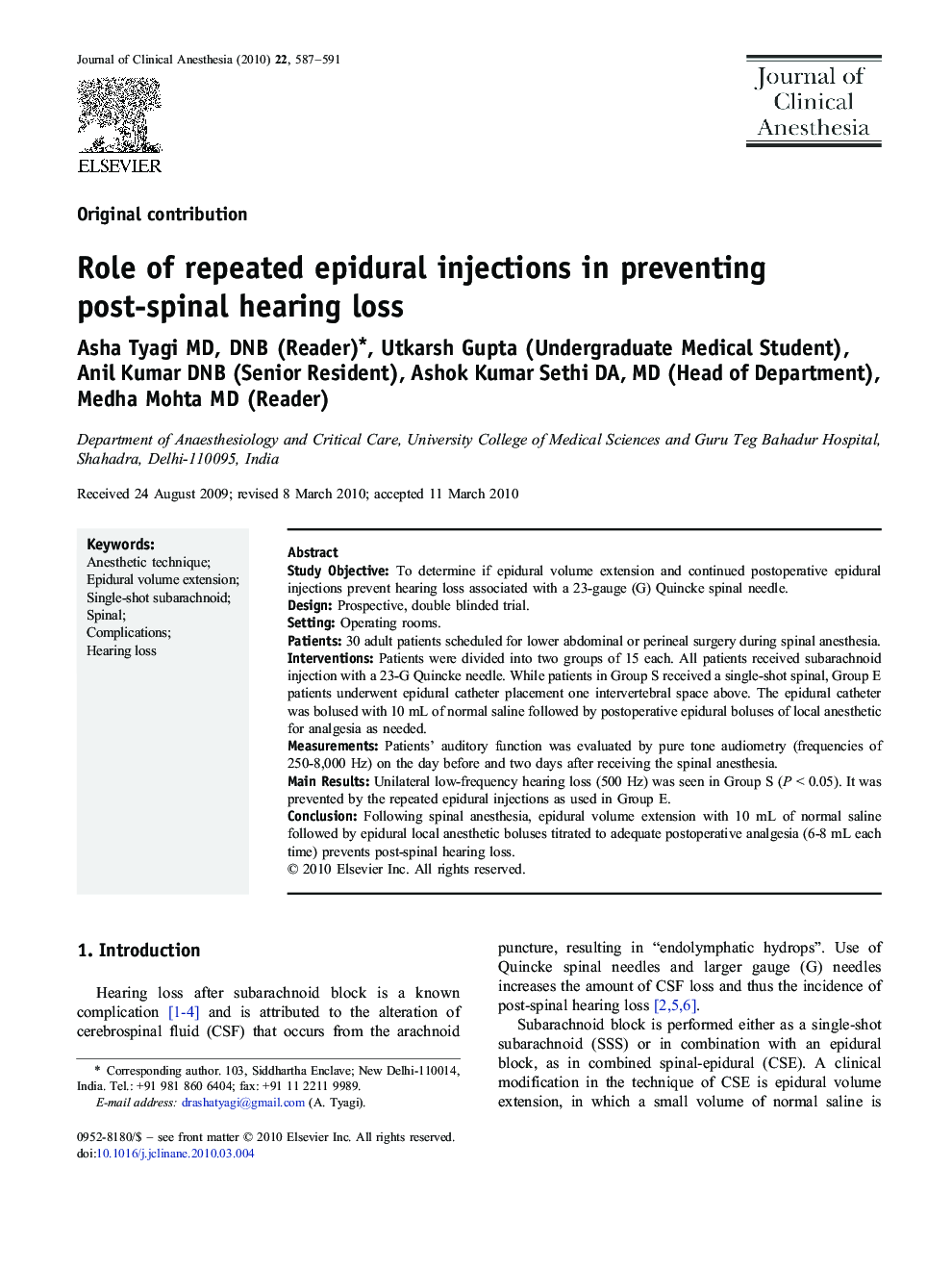| Article ID | Journal | Published Year | Pages | File Type |
|---|---|---|---|---|
| 2763414 | Journal of Clinical Anesthesia | 2010 | 5 Pages |
Study ObjectiveTo determine if epidural volume extension and continued postoperative epidural injections prevent hearing loss associated with a 23-gauge (G) Quincke spinal needle.DesignProspective, double blinded trial.SettingOperating rooms.Patients30 adult patients scheduled for lower abdominal or perineal surgery during spinal anesthesia.InterventionsPatients were divided into two groups of 15 each. All patients received subarachnoid injection with a 23-G Quincke needle. While patients in Group S received a single-shot spinal, Group E patients underwent epidural catheter placement one intervertebral space above. The epidural catheter was bolused with 10 mL of normal saline followed by postoperative epidural boluses of local anesthetic for analgesia as needed.MeasurementsPatients’ auditory function was evaluated by pure tone audiometry (frequencies of 250-8,000 Hz) on the day before and two days after receiving the spinal anesthesia.Main ResultsUnilateral low-frequency hearing loss (500 Hz) was seen in Group S (P < 0.05). It was prevented by the repeated epidural injections as used in Group E.ConclusionFollowing spinal anesthesia, epidural volume extension with 10 mL of normal saline followed by epidural local anesthetic boluses titrated to adequate postoperative analgesia (6-8 mL each time) prevents post-spinal hearing loss.
